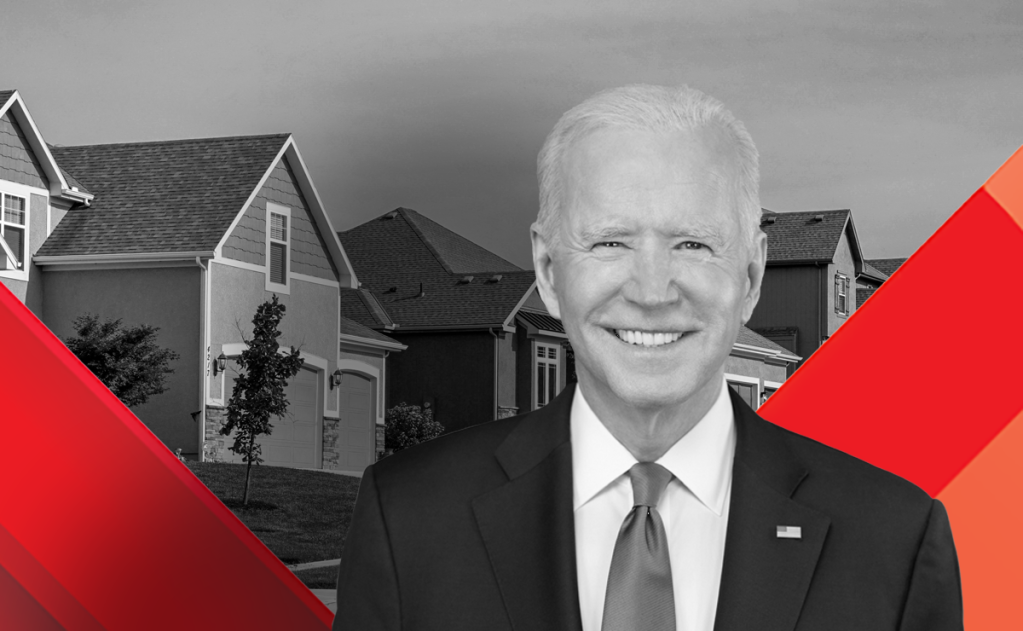
Federal agencies committed to further racial equity through new equity action plans, but for housing, the action plan is light on new action.
The housing plan lacks any participation from the Federal Housing Finance Agency, which is not a cabinet level agency, but oversees the federal entities that back most of the mortgage market. A FHFA spokesperson declined to give a timetable for the release of the equitable housing finance plans for Fannie Mae and Freddie Mac, which were due at the beginning of 2022.
Also missing among the agencies presenting plans for equity in housing were the Department of Justice, along with the Consumer Financial Protection Bureau and the Office of the Comptroller of the Currency, which regulates the nation’s largest banks. Those three agencies pledged last year to take on “digital redlining.”
Instead, the White House equity plan for housing centered on the Department of Housing and Urban Development, which oversees the Federal Housing Administration and enforces the nation’s fair housing laws. The FHA is still awaiting Senate confirmation of its nominated commissioner, Julia Gordon.
Biden made racial equity a formal administration priority the same day he took office. HUD’s response to that call for action involved contributions from more than 100 department staff, according to HUD Sec. Marcia Fudge. HUD’s equity action plan does not include any new funding for the efforts, however.
HUD’s equity action plan acknowledged the federal government’s historical role in enabling discriminatory practices in housing. The department said it is “eager to use HUD’s authorities to reverse the deep-seated detriment caused by prior federal policies and prioritize equity in all HUD programs.”
In a virtual press conference convened by the White House, Fudge said the key to narrowing the racial homeownership gap is to continue doing what the agency has been doing.
“For HUD, racial equity is what we do each day,” said Fudge. “Racial equity is and must continue to be front and center.”
In its action plan, which it released April 14, HUD highlighted potential future increases to funding for its salary and expenses. Biden called for the funding boost in his presidential budget, and will be a starting point for negotiations in Congress. HUD said the extra dollars would help the department keep pace with fair housing investigations, which reached a five-year high of 8,402 in 2021. The funding would also “improve capacity to pursue Secretary-initiated investigations and compliance reviews,” which do not necessarily arise from a public complaint, the equity action plan states.
The HUD equity action plan will increase outreach to small businesses that are underrepresented in its procurements.
HUD also outlined its approach to reduce the racial homeownership gap. To increase usage of the FHA program, which disproportionately serves first-time homeowners and people of color, HUD said it would try to remove “perceived bias of the program,” but did not fully explain how it would do that. FHA borrowers often experience discrimination because of the perception that FHA financing is inferior to agency-backed mortgage financing and will take longer to close.
The equity action plan also promised to improve efficiency of the FHA program by “leveraging technology.” FHA’s efforts to update its outdated technology systems hit a snag last year. While the mandatory use date for part of the FHA Catalyst program was pushed back a year in February, HUD officials have said they are satisfied with the program’s progress.
The department also said it would increase its outreach to non-traditional lenders, look into ways to make financing available for small-dollar mortgage loans, and increase mortgage financing on tribal trust lands. HUD also said it wants to expand access to financing for manufactured housing through updating the Title I program and construction and safety standards.
HUD also said it would improve “asset and credit building for renters interested in transitioning to homeownership,” which could signal a step toward pushing subsidized rental housing providers to report rental data.
Congress has sought action on rental data sharing since 2009, when it tasked the FHA with creating a pilot program to test out using alternative data such as rental history. That authorization expired four years later without the FHA taking action, and 2019 legislation to restart the process failed to advance from the House of Representatives.
Last year, advocates asked the Biden administration to direct HUD to use existing programs and its relationships with subsidized rental housing providers to report rental data.
HUD is also taking steps to address the excruciating lack of supply in the housing market, and to ensure that real estate it controls remains affordable. On Tuesday, HUD announced the sale of its vacant reverse mortgage properties to mission driven nonprofits.





